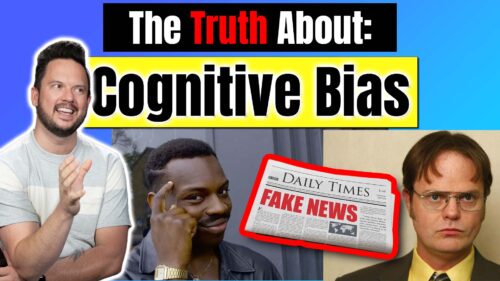
My biggest takeaway after finishing “The Cult of We” was how much fraud and dishonesty existed since the very beginning of the WeWork story. I had read all the articles and watched the Hulu documentary, and thought I had a solid grasp on the situation. But Eliot Brown and Maureen Farrell pull back the curtain in their book and tell the whole story.
If you are reading this, I can only assume you have a general understanding of the WeWork story and most likely watched the documentary on Hulu as well. As solid of a documentary as that was, there is a lot lacking that this book fills in.
Below are my notes and thoughts from reading The Cult of We (August 2021)
Community or Flexibility?
“WeWork is a comunity, a company, and a family. More than just offices, designed to bring people together.”
The original business of WeWork (prior to officially becoming ‘WeWork’) was a solid one. There was an actual market opportunity for renting desk space vs a standard office space. Office space required planning and long-term leases.
What Neumann and the team discovered very early on was that tenants would pay more per desk than they would in a standard office given the convenience and flexibility. Landlords could then fit more desks per floor, packed closely together, thus yielding a higher overall return.
The 2008 recession proved this further when demand for individual desks actually increased.
Unfortunately, Neumann believed that the demand for communal space put the emphasis on the ‘communal’ aspect, rather than that of the flexible ‘space’. Neumann took this as proof that people craved community, not cheap and flexible space.
Here come the VC’s (and soon wannabe VC’s)
Venture Capital (VC) are firms that take ownership in a private company which allows it to spend a few years growing before needing to turn a profit. Many of these investments go to zero. But the few that hit, hit really really big.
When a group of people makes a bunch of money, it’s not long until more groups want a piece of the pie. This time around it was boring mutual funds. Mutual funds were tired of getting their butts kicked by Index Funds and were chasing greater yields with their giant piles of cash. Venture capital looked neat, they thought.
For Venture Capitalists to win big, they need to invest in companies that scale fast, far, and wide. Like tech and software companies. For example: build a piece of software for a year and then spend 10 years selling it doesn’t require much more investment after that first year. This means as revenues grow, expenses stay the same and the difference between the 2 are your profits.
Tech companies are sexy because they can scale. You know what isn’t sexy?
Commercial Real Estate Leasing. Mattresses. Taxi services.
So how do you make your commercial real estate leasing company sexy and thus valuable? You call it a tech company, duh.
Calling themselves a tech company was economically beneficial, as long as investors believe it. And good news for Neumann, there were more investors than ever before, all competing to get a piece of the next big thing. When you are raising money for your company, just like selling your home, you don’t need everyone to agree on the right price, you just need one person to agree to your price.
Adam Neumann was awesome at this. Playing companies against each other, talking the talk and seemingly walking the walk. But from day one of reporting numbers, Adam was a liar. But after everything I have learned about him, I don’t think he ever thought he was lying. I have met people like him before. It’s like the George Costanza line from Seinfeld: “It’s not a lie if YOU believe it.”
Un-Reinventing the Wheel
I don’t know if this phrase has ever been used before. I do know that I have never used it before. I also know that I wrote down this phrase at least 3 separate times while reading this book.
If it’s not self-explanatory, allow me to explain: Reinventing the wheel means to re-create or ‘improve upon’ the already best version of something.
informal. : to waste time trying to do something that has already been done successfully by someone else.
Mirriam Webster Dictionary
Therefore, Un-Reinventing the wheel is a return to the status quo under the guise of newness.
Case in point: On their first office endeavor, Neuman and his partner negotiated with a landlord directly to let them find tenants for an entire floor to share, rather than the traditional office lease model. They would get a share of any profits based on number of tenants they brought in. (Reinventing the wheel)
Soon after:
- “But rather than partner with a landlord – splitting profits as they had in Dumbo – the two realized it would be easier to just lease the space they needed like any other business in need of office space.” pg. 34
On the margins of my hardcover copy of The Cult of We, the phrase “Un-Reinventing the Wheel” was born. And now I can’t stop seeing it everywhere in tech!
Additional notes & thoughts:
- Is the David Fincher film Social Network, the millennial version of Oliver Stone’s Wall Street? Unintentionally shaping an entire generation and providing them with a guide rather than a cautionary tale? Both directors have famously stated their intentions were to shame the actions of the characters in their film, not put on a pedestal. Adam Neumann was a big fan of Social Network. (pg. 46)
- Calling tenants “members” instead of tenants (pg. 39)
- “Activate the Space” = code for “pretend to be busy and have more paying users than we really do”. (pg. 65)
- Constantly preaching egalitarianism, Neumann was quietly carving out favorable deals and favorable terms for himself, creating an environment where he didn’t need WeWork to succeed (or go public) like most founders would. (pg. 71)
- “Further adding to the chaos was the relative scarcity of startups looking for big sums. Gian mutual funds like Fidelity were hoping to spend billions, so they certainly didn’t want to waste time parcelling out in bundles of $10 million.” (pg. 83) Absolute insanity!
- Once one large fund invested, due diligence by other funds became less important (non-existent)
- Profits didn’t matter. Valuation was everything. And solely based off investor checks.
- Massive demand from mutual funds entering the VC world was like shaking up the snow globe. The rules changed overnight and no one knew where it would settle. Maybe these valuations did make sense in the new market? (No, they did not)
- in 2014, Regus had about 14 x more ‘members’ than WeWork, and WeWork was valued 4x more than Regus.
- “In bubbles, the heard and its collective psychology prevail over the individual.” (pg. 97)
- “At a basic level, what was happening was the amount of money chasing companies had grown far faster than the number of good ideas.” (pg. 98)
- “Rising valuations gave the illusion of success.” (pg. 99)
Recommendation: Buy the book. Read it. Return to it again in 3 years.



